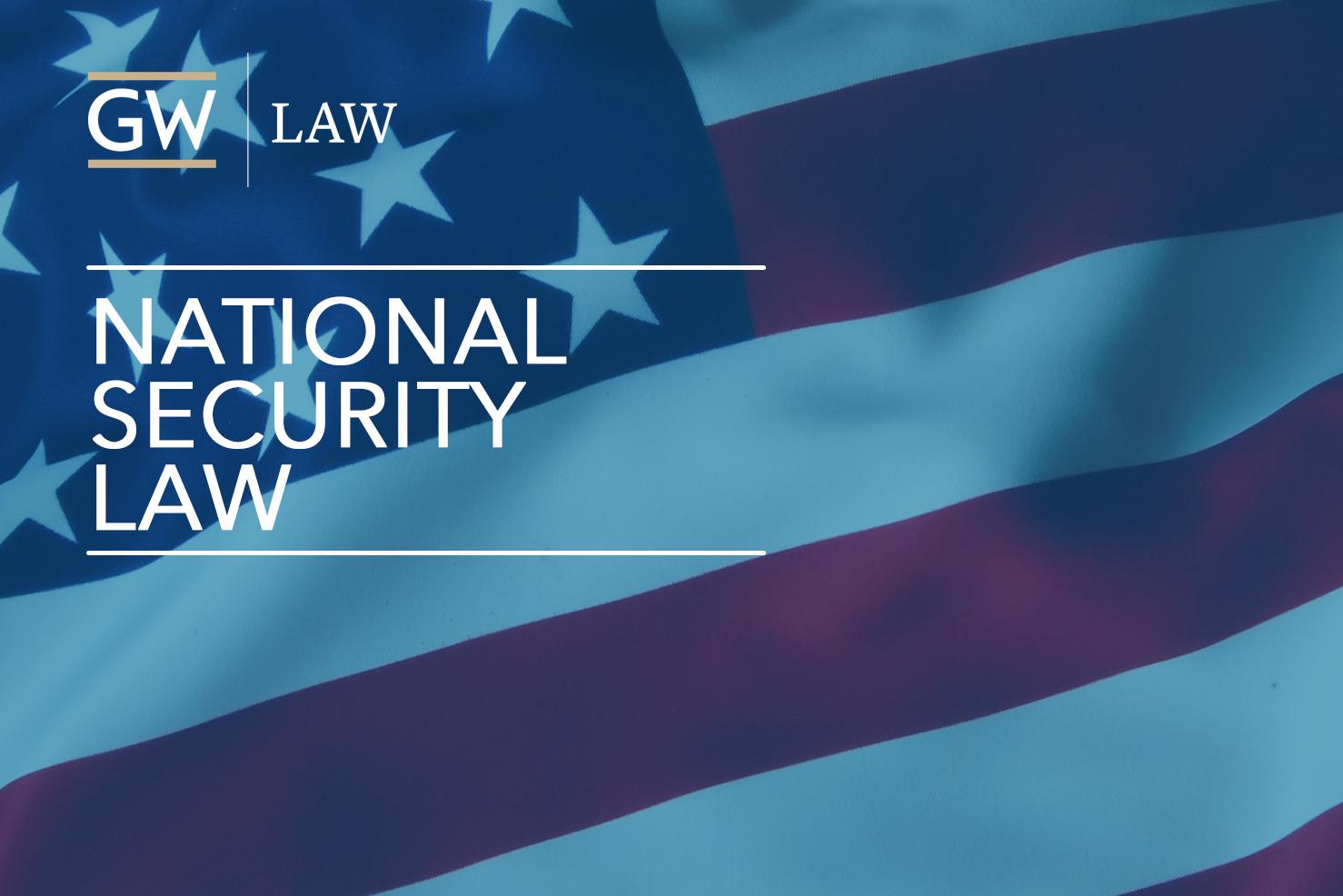National Security & U.S. Foreign Relations Law
This practice area, which has grown exponentially since the terrorist attacks of September 11, 2001, explores the nature and origins of the federal government's foreign relations powers, and U.S. law implementing international law, and the U.S. law of national security and counterterrorism. The field includes law on the use of the armed forces at home and abroad, intelligence operations abroad, counterterrorism, electronic surveillance and privacy, homeland security, crisis management and continuity of government, immigration, nonproliferation, treatment of detainees, congressional investigations and oversight, and classified information.
The National Security and U.S. Foreign Relations Law Program highlights The George Washington Law School's unique strengths, which include an expert faculty, an extensive curriculum, and access to the extensive Washington, DC foreign relations and national security law community. Three of GW Law's full-time faculty members have authored four current casebooks in the field, and its full-time and adjunct faculty include the U.S. Department of Justice's leading counterterrorism expert and advocate, one of the academy's leading experts on computer crime and cyber law issues, one of the academy's leading experts on privacy and surveillance, a draftsman of the Military Rules of Evidence (and a member of the ABA Task Force on Terrorism and the Law), the head of appellate litigation for the military commissions prosecution team, and the U.S. Department of Justice attorney who has litigated a number of leading foreign relations law cases.
While a number of U.S. law schools offer one or two courses in this field, few others approach the number of courses available at GW Law. The two required foundational survey courses are Foreign Relations Law and National Security Law. The remaining advanced elective courses pursue in greater detail issues raised in the survey courses. Students interested primarily in counterterrorism law, for example, can take that course, Homeland Security Law and Policy, Information Privacy Law, International Money Laundering, Corruption, and Terrorism, and Cybersecurity Law and Policy, among other courses, for a thorough and up-to-date grounding in the evolving field, in addition to participating outside the classroom in panel discussions, seminars, and conferences featuring leading practitioners of Counterterrorism Law. Students interested primarily in foreign relations law, for another example, can take International Law, the Law of War, and International Criminal Law, among other courses, in addition to numerous opportunities for learning and networking outside the classroom.
Washington, DC is the epicenter for study in this field. The capital houses national security agencies ranging from the White House National Security Council and the U.S. Department of Homeland Security, to U.S. Defense Nuclear Safety Board and the U.S. Institute of Peace. Among the dozens of research centers and think tanks that conduct research in foreign relations and national security law are the Cato institute, American Foreign Policy Institute, American Enterprise Institute, and Center for National Security Studies. These include GW's own on-campus National Security Archive, which collects and publishes declassified documents pertaining to national security and foreign relations, providing a treasure trove of original materials for advanced research. On Capitol Hill, national security issues are explored on more than a dozen committees and sub-committees of the House and Senate, with a growing number of staff dedicated to national security issues. Legislative activities in the field not only afford opportunities for first-hand observation, but increasingly engage GW Law faculty and their students in drafting initiatives and testimony, including, for example, recent bills to overhaul the War Powers Resolution and the Foreign Intelligence Surveillance Act.


